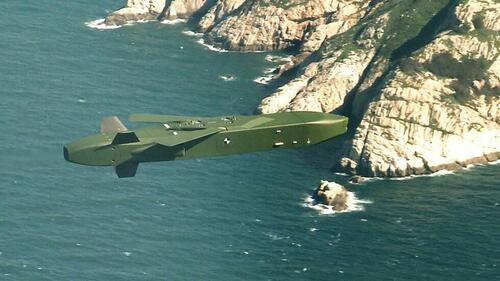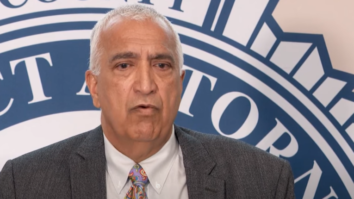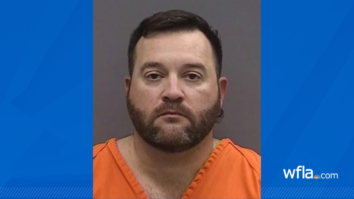
In a huge development and absolute smoking gun revelation, the government of Germany has confirmed the authenticity of a leaked audio recording file published by Russia’s state-backed RT. The leak was first published by RT Editor-in-Chief Margarita Simonyan, who described that she received it from Russian security officials.
It first appeared under the headline “Alleged audio of German officers discussing Crimean Bridge attack leaked” – as it featured top ranking Germany military officials in a private discussion of “a potential German operation to bomb the Crimean Bridge in Russia,” as it was initially described by RT. Russian media is now openly admitting that the call was in fact intercepted by Russia. Moscow is now saying this shows “direct” German involvement in the war.
The audio could have easily been dismissed in the West as simply Russian-sourced propaganda or even an AI fake; however, in an unexpected development the highest levels of the German government have now confirmed that the audio is indeed real and Berlin launched an investigation into the “serious” breach of secured communications.
“What is being reported is a very serious matter and that is why it is now being investigated very carefully, very intensively and very quickly,” German Chancellor Olaf Scholz said in Rome.
Germany’s military has also confirmed the leaked recording, but officials have avoided weighing in the actual content of what was said pending an internal investigation:
A German defense ministry spokeswoman confimed to AFP that the ministry believes a conversation in the air force division was “intercepted”.
“We are currently unable to say for certain whether changes were made to the recorded or transcribed version that is circulating on social media,” the spokeswoman said. Experts consulted by Der Spiegel magazine said they believed the recording was authentic.
Germany’s Ministry of Defense said per the country’s dpa: “According to our assessment, a conversation within the Air Force was intercepted. We cannot currently say with certainty whether changes have been made to the recorded or written version that is circulating on social media.”
AFP further writes that “Topics include aiming the missiles at targets such as a key bridge over the Kerch strait linking the Russian mainland to Crimea, which was annexed by Russia in 2014.”

Additionally the potential supply of Taurus long-range air-to-surface missile to Kiev is a major focus of the conversation. The Franco-British cruise missile Storm Shadow also receives mention.
Importantly, it seems none other than Lieutenant General Ingo Gerhartz – the commander of the national air force, is among the four voices heard in the audio among top generals within the Bundeswehr, Germany’s armed forces.
A particularly damning section of the audio for which Moscow is currently demanding answers from German leaders…
They are heard openly discussing “interesting targets” including the “bridge in the east” and nearby “ammunition depots”.
Of course, the vital 12-mile bridge which spans the Kerch Strait and connects Crimea with mainland Russia was already previously severely damaged and briefly knocked out of commission in a major July 2023 missile or drone attack from Ukraine. Prior to that in October 2022 a truck bomb detonated on the bridge, resulting in parts of the roadway collapsing into the water below.
Those prior attacks were suspected to have had Western intelligence help, given the sophistication of the operations. Are the German officers caught in the audio possibly plotting another future attack? (Or alternately some of the contents or references could predate the prior attacks on the bridge, timeline-wise). Third time’s a charm? Most likely, this is a very recent conversation wherein they talk about a future potential attack:
In the 38-minute recording, military officers discuss the question of how the Taurus long-range cruise missiles could be used by Ukraine. A debate has been taking place in Germany over whether to supply the missilesas Ukraine faced setbacks on the battlefield after two years of war, and with military aid from the United States being held up in Congress.
Earlier this week Scholz said he remains reluctant to send the Taurus missiles to Ukraine, pointing to a risk of Germany becoming directly involved in the war. His hesitancy is a source of friction in his three-party coalition and also annoyed Germany’s conservative opposition.
But in the purported audio recording, German officers discuss the theoretical possibility of the missiles being used in Ukraine.
Listen to more snippets from the Crimean Bridge section of the recording:
* * *
A transcript and an audio recording, made public
Simonyan posted the transcript of the February 19 phone call on her VK page, identifying the participants as the head of the German air force (Luftwaffe), General Ingo Gerhartz, the branch’s deputy chief of staff for operations, Brigadier-General Frank Graefe, and two others.
Soon afterward, Simonyan published the audio recording of the discussion as well, in German, on her Telegram channel.
The officers discussed the operational and targeting details of Taurus long-range missiles that Germany was debating sending to Ukraine, as if this had already been agreed upon – and how to maintain plausible deniability so that Germany could avoid crossing the “red line” of direct involvement.
Gerhartz brought up various “tricks” that the Luftwaffe could use, including relying on “many people [in Ukraine] in civilian clothes who speak with an American accent,” but Graefe insisted that “there is no language that makes us a party to the conflict.”
Other officers spoke about providing the Ukrainians with both the missiles and the training to use them, as well as the satellite targeting information, possibly via Poland.
The Germans noted the Ukrainians’ fixation on the Crimean Bridge, mainly for political reasons. They noted that the bridge was sturdy enough that not even 20 missiles would be able to destroy it. The 50 or so missiles Berlin could provide Kiev – in batches – “won’t change the course of the war,” Gerhartz himself admitted.
“We demand an explanation from Germany. Official Berlin must provide it immediately. Attempts to dodge the question will be considered an admission of guilt,” said Russian Foreign Ministry spokeswoman Maria Zakharova.
Foreign Minister Sergey Lavrov said that NATO had “egg on its face” due to the recording. He also noted that the German officers knew perfectly well that they were discussing direct involvement, as evidenced by attempts to disguise or hide it, and highlighted the part about Americans operating in Ukraine. Speaker of the State Duma Vyacheslav Volodin said the legislature will address the recording when it reconvenes on March 11. The matter “deserves the most serious discussion” and Moscow certainly needs to “send a demand to the Bundestag to conduct an investigation,” he added.
Germans have “once again turned into our archenemies,” said former Russian President Dmitry Medvedev. “Just take a look at how thoroughly and in what detail the Krauts are discussing long-range missile strikes on Russia’s territory, and are picking out targets and the most workable ways to harm our Motherland and our people.” He ended his post with the WWII-era slogan, “Death to the Fascists!”
When asked about the recording and the transcript on Friday, the Pentagon declined to comment, telling American reporters to reach out to the German military instead.
German officials have responded to the revelation by launching an investigation into how the recording got out. Speaking to Bild, a spokesperson for the Defense Ministry declined to “say anything about the content of the communications that were apparently intercepted.”
However, multiple German media outlets have reported that a preliminary probe appeared to conclude that the recording was authentic. In light of this, Bundeswehr has resorted to censorship, with multiple accounts on X (formerly Twitter) that distributed the material being blocked in Germany, according to Bild.



















